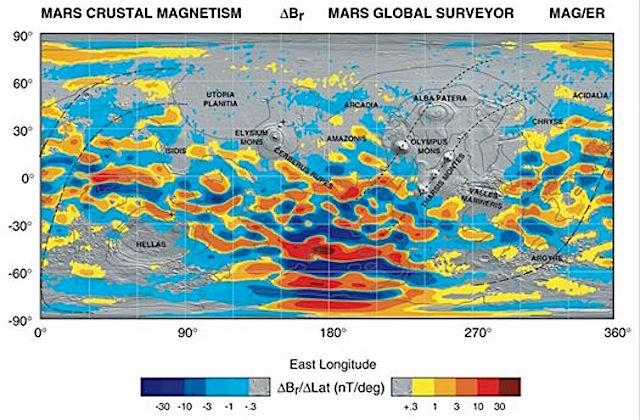 New MAVEN research shows that high solar wind pressure influences Mars’ magnetic fields in ways that can increase the global loss of atmosphere to space.
New MAVEN research shows that high solar wind pressure influences Mars’ magnetic fields in ways that can increase the global loss of atmosphere to space.
Planetary atmospheres are constantly bombarded by energy and radiation from the Sun, and over time this energy input can strip away an atmosphere to space. This process has been particularly devastating at Mars, where the loss of most of its original atmosphere has left the planet cold and desolate.
This loss may have been in part due to the planet’s lack of a global magnetic field. While the Earth possesses a large magnetic field that diverts much of the solar energy input, Mars does not. However, Mars does possess smaller pockets of magnetic field that are rooted in the planet’s crust and extend outward through the atmosphere, a unique feature in the solar system.
These magnetic fields are able to shield Mars’ atmosphere on a small scale but are susceptible to changes in the strength of solar activity. MAVEN scientists have demonstrated [in the journal Geophysical Research Letters] that during these periods of increased solar output, the magnetic pockets across Mars are compressed to a smaller size, leaving the planet’s atmosphere more exposed and more likely to escape to space. [More at links]








